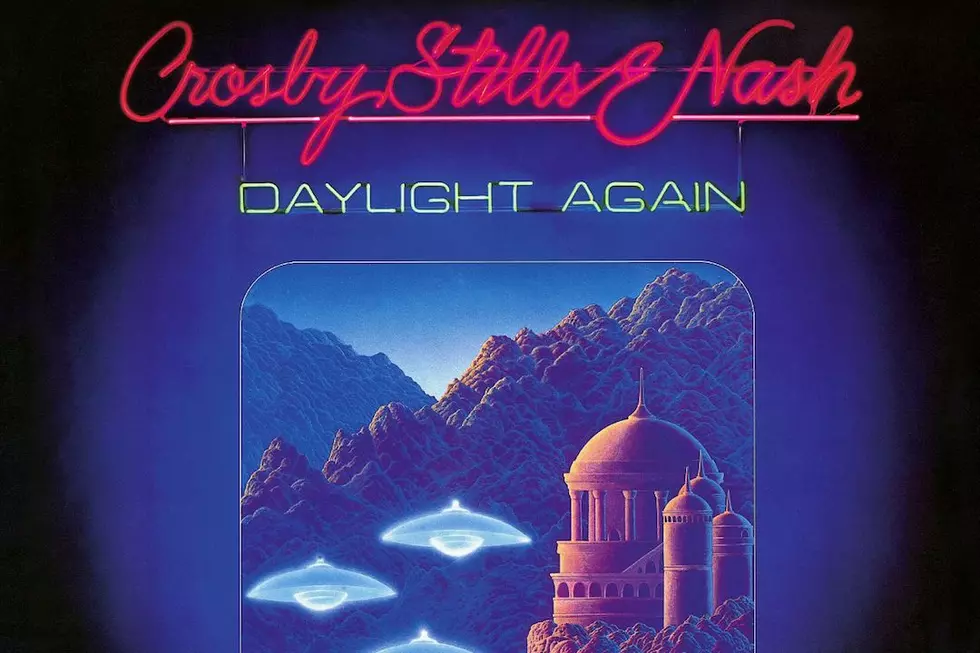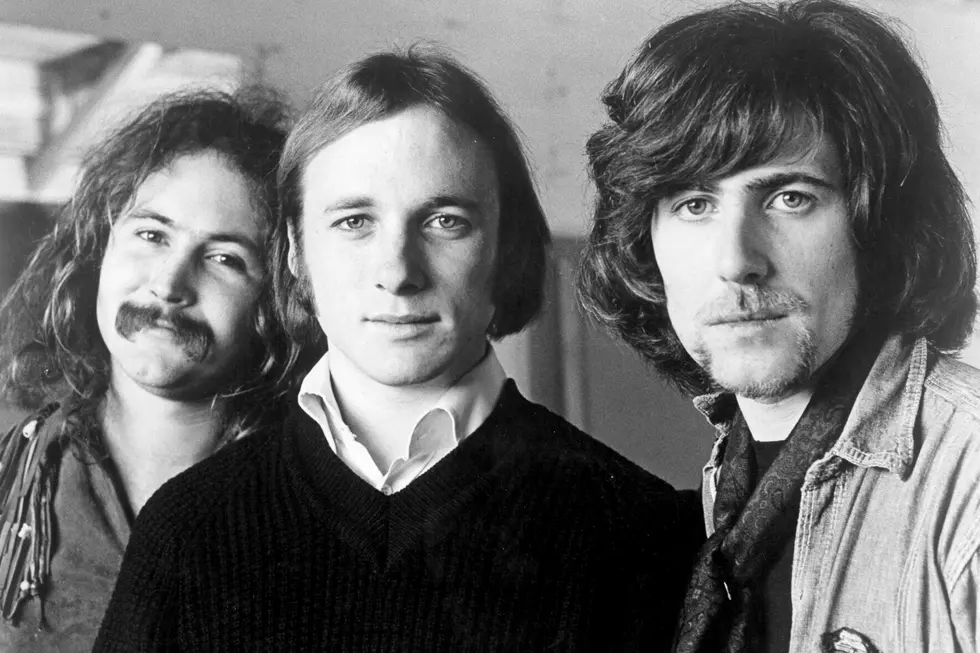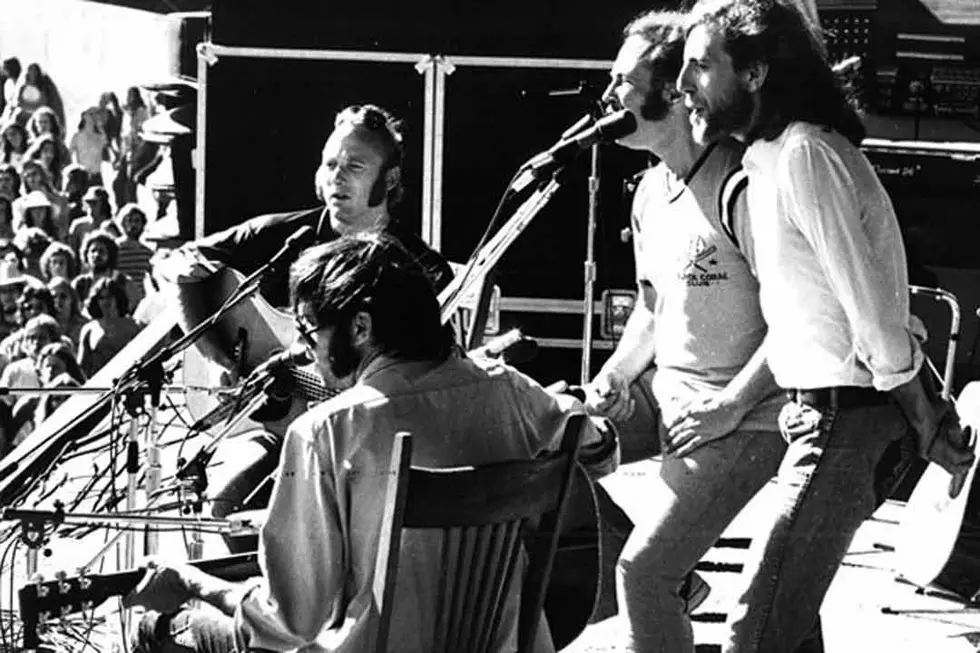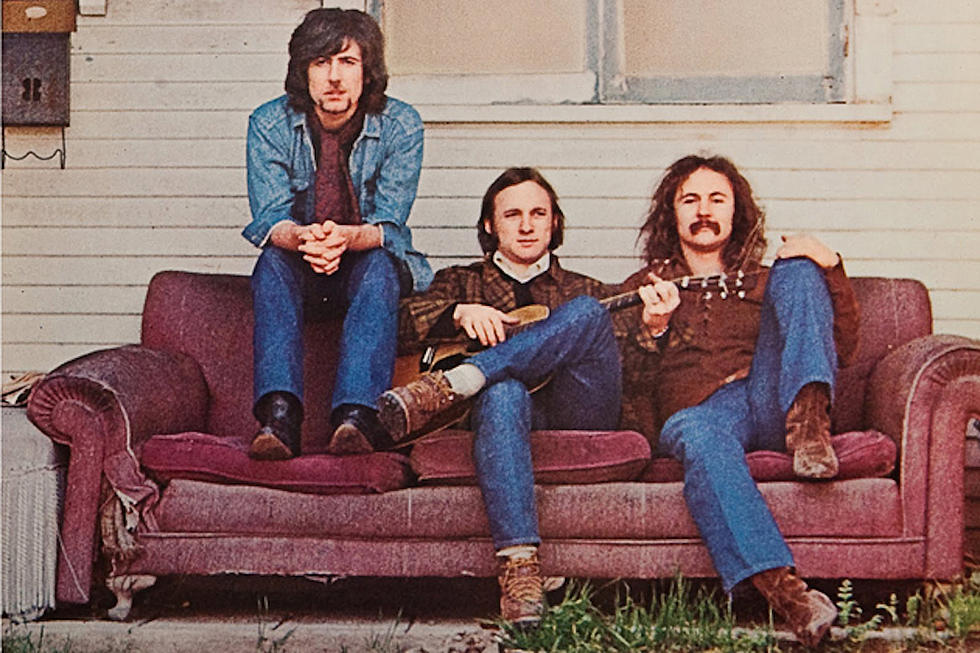
How Crosby, Stills and Nash Sorta Reunited for ‘Daylight Again’
Crosby, Stills & Nash's "Wasted on the Way," the Top 10 single from Daylight Again, couldn't have been a better metaphor for everything that brought the tempestuous trio back together: "There's so much time to make up, everywhere you turn."
"That was a song I wrote for David [Crosby] and Stephen [Stills]," Graham Nash told the Oklahoman in 1982, "to tell them that I thought we had wasted too much time and too much love and too much music in petty arguments."
These weren't sentiments about a faraway time. Released on June 21, 1982, the platinum-selling Daylight Again grew out of a series of failed attempts by Nash and Stills to produce an album for Atlantic in sessions that dated back to 1980. Their label wasn't going to be satisfied, however, until the erstwhile Crosby was back on board.
By then, Nash and Stills had been reduced to self-financing the long-delayed project – which became known, among the band and crew, as "the album that wouldn't die." A series of guest singers had also already joined the proceedings, including Timothy B. Schmit and Art Garfunkel.
"They wanted a Crosby, Stills & Nash album," Nash said in Crosby, Stills & Nash: The Biography. "They knew that as a combination, CSN would sell more than anything me and Stephen might have together. And when I stated listening, over and over, to the work that Stephen and I had done, I swear I could hear Crosby's voice in there. It was a like his ghost was singing on the tracks. Very weird. Then I would realize he really wasn't there, and I started to miss him."
Crosby began by adding background vocals to Nash's already-completed "Song for Susan," and all three singers were featured on Crosby's "Might as Well Have a Good Time." But on other tunes – notably Stills' "Daylight Again," featuring Garfunkel – Crosby agreed that the completed tracks simply couldn't be improved upon. Similarly, Crosby's basically finished "Delta" was so deeply layered that there was simply no room for Nash or Stills.
Listen to Crosby, Stills & Nash Perform 'Wasted on the Way'
In the end, this became something of a blessing, since Crosby needed songs for a solo project he was working on. Moreover, dependency issues had also badly sapped his stamina. (Crosby eventually spent nine months in jail after being convicted in 1983 on drugs and weapons charges.) In fact, only one new song was cut after Crosby's arrival: "Since I Met You," a Stills co-write featuring Toto co-founder Jeff Porcaro on drums. Stills ultimately dominated the songwriting, co-composing six of the 11 songs on Daylight Again.
The title track dated back to Stills' mid-'70s era solo shows, when the guitarist would pair spontaneous Civil War-related remembrances with a searching riff to form a lengthy intro for "Find the Cost of Freedom." "Southern Cross," Stills' Top 20 hit, grew out of a song originally titled "Seven League Boots" by Michael and Richard Curtis. "I rewrote a new set of words and added a different chorus, a story about a long boat trip I took after my divorce," Stills later remembered. "It's about using the power of the universe to heal your wounds."
Crosby, however, was again nowhere to be found on "Southern Cross," despite appearing in the accompanying video. "I wish I would have been here sooner," he mused in Crosby, Stills & Nash: The Biography. "I wish some more of my music was on there."
A tour followed the release of Daylight Again, only the fourth studio album by the group in 14 years – but then came another lengthy absence. (Crosby, Stills & Nash wouldn't reform in the studio until 1988, and this time with Neil Young.) By then, "Wasted on the Way" and "Southern Cross" had filtered seamlessly into tour set lists dominated by much older songs, and the turmoil surrounding these sessions felt like ancient history.
"This was, by far, one of the most frustrating projects of my life," Nash said in Crosby, Stills & Nash: The Biography. "Sometimes, it was hard to see the whole and get a sense of CSN as a unit. But we pulled it together. ... I'm very proud of this record. It took far too long to complete, but it was worth it."
Legends Who Never Had a No. 1 Single
The Best Crosby, Stills, Nash and Young Fight Stories
More From 100.7 KOOL FM








